DR.VIPUL SANGHAVI
MBBS (Gold Medalist)
MRCP Medicine :UK (London)
Fellowship of college of Physician and Surgeons of Mumbai.
DrNB Nephrology (KEM)
Renal Transplant Fellow (Hammersmith Hospital UK)
Interventional Nephrology Fellow-Sir Gangaram Hospital Delhi


Consultant Interventional Nephrologist and Kidney Transplant Physician.
Dr.Vipul Sanghavi is widely recognised as one of the best Nephrologist in Kolhapur,Maharashtra,brings extensive experience in treating complex renal diseases.His Expertise covers a broad spectrum of kidney-related conditions,Including Diabetic Kidney Disease,Uncontrolled Hypertension, Chronic Kidney Disease,Acute kidney Injury,Glomerular Diseases,Urinary Tract Infections and Kidney Stones.
As specialist in renal transplantation, Dr.Sanghavi is highly skilled in ABO-incompatible transplants (Transplantation across different groups) and has received training at one of the world's leading centers in London, UK (Hammersmith Hospital).He is proficient in various dialysis techniques, including intermittent Hemodialysis, Peritoneal dialysis, Hemodiafiltration, SLED and CRRT.
In addition, Dr.Sanghavi is experienced in performing a range of interventional procedure such as permcath insertions, AVF creation, Kidney Biopsy, PD Catheter insertion and endovascular procedures.
Best Nephrologist In Kolhapur
DR.VIPUL SANGHAVI
Discover multi-specialty care with beautiful design and easy navigation for your health needs.
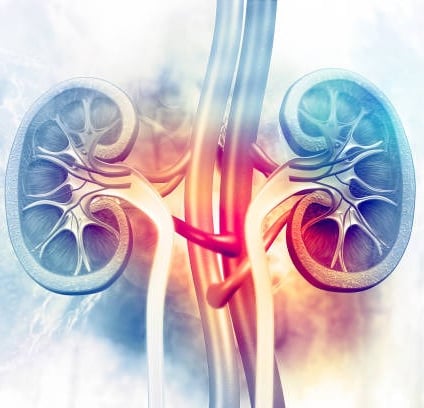

Expert Health Care Services for Your Well-being


DIALYSIS (HID,CVVHD,PD)
The kidneys play a vital role in filtering waste products, balancing electrolytes, and regulating blood pressure. When these organs fail, waste and fluids accumulate, leading to severe health issues. While dialysis can manage symptoms, it is time-intensive and cannot fully replace the kidneys' functions. A transplant offers a long-term solution, enabling recipients to lead healthier, more active lives.
What we can offer you?
ACUTE KIDNEY INJURY
CHRONIC KIDNEY DISEASE
Acute Kidney Disease, also known as Acute kidney injury (AKI), is a sudden loss of kidney function that occurs over hours or days. It is often reversible with prompt medical intervention.
Chronic Kidney Disease (CKD) is a long-term condition where kidney function gradually declines over months or years. It is often irreversible and progresses through five stages, with stage 5 being end-stage renal disease (ESRD).
KIDNEY TRANSPLANT
Dialysis is a medical procedure that serves as an artificial replacement for the primary functions of the kidneys. When the kidneys are unable to filter blood adequately due to disease or injury, dialysis steps in to remove waste products, toxins, and excess fluid from the body. This treatment is a cornerstone for managing kidney failure and improving the quality of life for those affected.


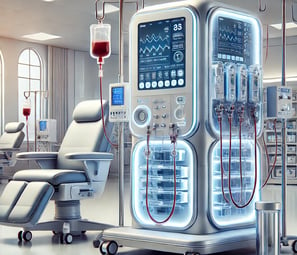

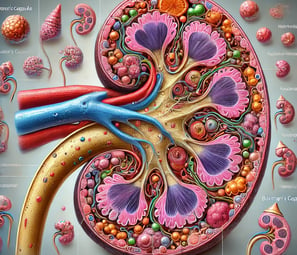

GLOMERULAR DISEASE
Glomerular disease refers to any condition that damages the glomeruli, impairing their ability to filter blood effectively. This can lead to protein and blood leaking into the urine, waste products building up in the bloodstream, or both.
Glomerular diseases can be classified into two types:
Primary Glomerular Disease: The problem originates in the kidneys (focalsegmental,glomerulosclerosis,IgA nephropathy).
Secondary Glomerular Disease: The kidney damage results from a systemic condition such as diabetes, lupus, or infections.
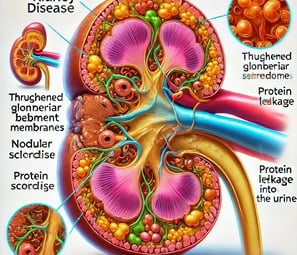

DIABETIC KIDNEY DISEASE
Diabetic kidney disease is a chronic condition caused by prolonged high blood sugar levels, which damage the tiny blood vessels in the kidneys’ glomeruli. Over time, this damage can lead to protein leakage into the urine (proteinuria), reduced kidney function, and eventually kidney failure if left untreated.
DKD develops in stages, starting with mild protein leakage and potentially progressing to end-stage kidney disease (ESKD), where dialysis or kidney transplantation may be required.
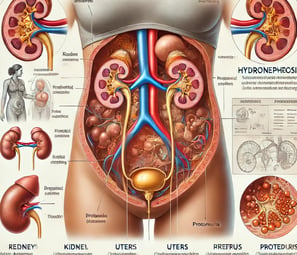

PREGNANCY RELATED KIDNEY DISEASE
During pregnancy, the kidneys experience significant changes to support the growing fetus:
Increased Kidney Size: Hormonal and vascular changes lead to an increase in kidney size by up to 1 cm.
Higher Blood Flow: Renal blood flow increases by 50–70%, boosting filtration rates.
Dilated Ureters and Hydronephrosis: Compression from the uterus can cause the ureters to dilate, leading to a buildup of urine (hydronephrosis).
Altered Filtration: Glomerular filtration rate (GFR) increases by 40–50%, affecting the clearance of certain substances.
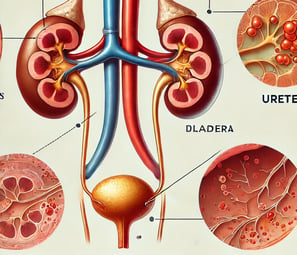

URINARY TRACT INFECTION
A urinary tract infection occurs when harmful bacteria, most commonly Escherichia coli (E. coli), enter the urinary system, which consists of the kidneys, ureters, bladder, and urethra. While UTIs can occur in any part of this system, they most frequently affect the lower urinary tract—the bladder and urethra.
KIDNEY STONES
Kidney stones are a common and painful condition that affects millions of people worldwide. These hard mineral and salt deposits form in the kidneys and can cause significant discomfort when they move through the urinary tract. While kidney stones can affect anyone, understanding their causes, symptoms, and preventive measures can help you manage or avoid this condition altogether.
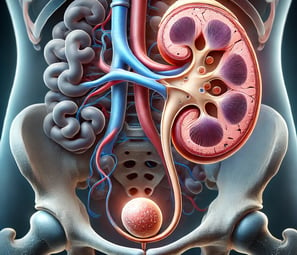

Comprehensive Nephrology Services


Our Location
Survey No. 416 B, Sanghvi Hospital, Mahalaxmi Temple Road, Bhavani Mandap, Kolhapur - 416012
Advanced Treatments
Access cutting-edge treatments and therapies for various kidney-related conditions and diseases.
Address :
SANGHAVI HOSPITAL ,
Survey No. 416 B, Sanghvi Hospital, Mahalaxmi Temple Road, Bhavani Mandap, Kolhapur - 416012
Support
Contact
info@drvipulsanghavi.com
+91-9876543210
© 2024. All rights reserved.